President's Message
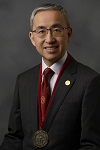
Preview: 52nd Annual Meeting and Course in Philadelphia, Sept. 6 to 9
For the past 51 years, the Annual Meeting has been the flagship event of our society, and a meeting that spinal deformity surgeons and scientists from around the world attend to obtain the latest information in this field. The 52nd Annual Meeting will continue this tradition with a theme on global spine care and innovative educational formats. There were 1506 submitted abstracts; 129 were accepted for podium presentations, 45% of which are from presenters outside of the USA. In addition, we have 104 e-posters, 15 e-presentations, and 12 case discussions. Muharrem Yazici, MD and the Program Committee have done masterful work in reviewing all of the submissions and putting together a truly outstanding program.
Read more »
Inside this Issue
Read more »
Hot Topics Articles
Global Outreach Committee Update
Long Range Planning Committee Update
Research Grant Committee Update
Read more »
Treasurer's Report
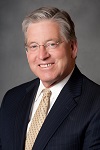
J. Abbott Byrd, III, MD
Treasurer
The SRS continues to be financially sound. As of May 31st of this year our total assets are $13.7M compared to $12.3M in 2016 and $11.9M in 2015. The breakdown is $5.1M in the Rockefeller (REO) fund, $4.2M in the Vanguard (Legacy OREF Endowment) fund, $3.9M cash (research and operating) and other assets $500K. Our investments have done quite well this year with Rockefeller returning approximately 12% YTD and Vanguard 8.08% through June 30th net of fees. July numbers are not included in the Vanguard return and would certainly increase this return. In addition, the asset allocation of the two funds differs by design so a direct comparison is not a fair assessment of one fund against the other. Vanguard is outperforming its benchmarks by 20-30 basis points. Overall, the SRS investment strategy is working quite well.
Read more »
Ethics Corner

Kamal N. Ibrahim, MD, FRCS(C), MA
Ethics and Professionalism Committee Chair
The committee publishes in each issue of the newsletter a case of possible ethical or professionalism dilemma and invites members to send their comments. Please send your comments to [email protected]. The committee will collect all responses, summarize and publish them in the subsequent newsletter.
In this issue Tim Garvey, MD presents an ethical dilemma that could be faced by any surgeon and was not previously explored.
Read more »
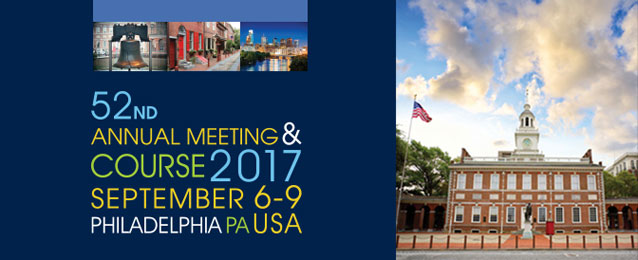
Read more »
Nominating Committee Update
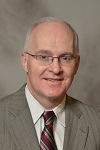
David W. Polly, Jr., MD
Nominating Committee Chair
The first step for the Nominating Committee was to issue a Call for Nominations to members, asking for nominations for the positions of Vice President, Secretary Elect, Research Council Chair Elect, three Directors at Large (one of whom should be age 45 or younger, if a qualified candidate is available), and one member of the Fellowship Committee. Nominations were open from December 1, 2016 to March 1, 2017, with a large number of very qualified individuals nominated.
Read more »
Long Range Planning Committee Update

David W. Polly, Jr., MD
Long Range Planning Committee Chair
The Long Range Planning Committee is charged with selecting locations and venues for the Annual Meeting and for IMAST. This year the committee was looking for 2020 locations in North America for the Annual Meeting and outside North America for IMAST. The committee looks carefully at a variety of factors, including amount of space, layout or “flow” of the space, hotel options, air access, cost and general appeal.
Read more »
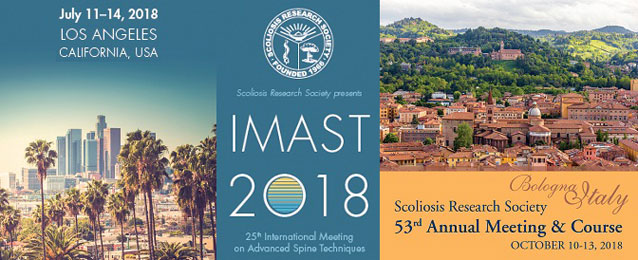
Read more »
IMAST Committee Update

Ronald A. Lehman, Jr., MD
IMAST Committee Chair
We have just concluded our first Scoliosis Research Society meeting on the continent of Africa with the 24th International Meeting on Advanced Spine Techniques (IMAST) in Cape Town on July 12-15, 2017. We had over 25% of the delegates from Africa attend this meeting, and we have already begun to plan the 25th IMAST meeting to be held in Los Angeles, CA in July 2018. It is hard to believe that this will be the 25th iteration of this game changing meeting that first allowed our society to explore with more vigor the innovation and novel techniques that have significantly advanced our field over the past few decades. With the help of Henry F. H. Halm, IMAST Co-Chairman, and SRS President Elect Todd Albert, we anticipate an outstanding venue and program. Los Angeles has much to offer, and is located within a few hours’ drive to numerous parks, beaches, and historical sites, allowing for the entire family to enjoy this amazing area.
Read more »
Development Committee Update
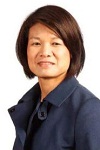
Serena S. Hu, MD
Development Committee Chair
The Scoliosis Research Society has long been aware of the strong roots that spine deformity fellowships have provided for spine surgeons worldwide. Many have gone on to found their own spine fellowships, multiplying the impact that these training programs have had. The Development Committee is working to memorialize the “Genealogy” of our members. We have begun to contact our members who have spine deformity fellowships, both adult and pediatric, US and outside of the US, to help assemble lists of fellows who have completed their fellowships. To track where fellows have gone to help other fellowships grow or start their own fellowships will help develop a “Genealogy Tree” where we can view the many instances of branching and cross fertilization in our collective experiences.
Read more »

Read more »
Global Outreach Committee Update
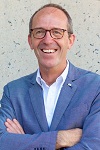
Ferran Pellisé, MD, PhD
Global Outreach Committee Chair
The Global Outreach Committee has worked hard to accomplish the committee charges and develop its main priorities: GOP Road-Map and new online GOP database.
Our website has been recently updated and new educational material is now available. The FOCOS Hospital halo-gravity traction (HGT) system video is now accessible online. The video is an excellent opportunity to learn how to build HGT-walker and wheelchair frames.
Read more »
Translation Committee Update

André Luís F. Andújar, MD
Translation Committee Chair
The Translation Committee is responsible for translating all Patient Education materials on the SRS website to other languages, in coordination with the Patient Education and Website Committees. This year, we added two new languages to be translated – Russian and Czech – for a total of 14 languages being translated, helping the SRS to accomplish its mission statement which is to foster the optimal care for all patients with spine deformities.
Read more »
Click Banner to Download and Print Fliers For Your Patients
Read more »
Research Grant Committee Update
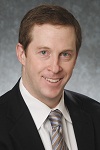
Patrick J. Cahill, MD
Research Grant Committee Chair
The committee reviewed, evaluated, and scored 22 grant applications during the spring cycle. The committee members were divided into 6 groups based on the members’ self-ranked expertise in specific areas of knowledge. A leader was assigned to each group. Each group evaluated 7-8 grants that loosely coincided with the group’s expertise. Each member assigned a ranking from 1-5, and the grant applications rankings were assigned an average score. All grant application scores from all 6 teams were posted to all members. A conference call of the group leaders was carried out to decide the final ranking.
Read more »
Morbidity and Mortality Committee Update
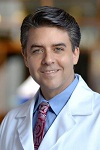
Darrell S. Hanson, MD
Morbidity and Mortality Committee Chair
The role of the Morbidity and Mortality Committee (M&M) is to continue to oversee the collection of data to assess the complication rates on a year-to-year basis, streamline the data submission process for the membership so that it is not terribly onerous, and to use the available data for presentations and publications. Our committee continues to strive to improve the data entry site and increase the value added to the membership of the SRS.
Read more »

Read more »
Coding Committee Update
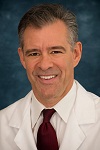
Matthew D. Hepler, MD
Coding Committee Chair
Coding Posterior Interbody Fusion with Decompression
(the Byzantine world of medical coding)
One of the most frequent coding controversies over the last several years has been how to properly code a posterior interbody fusion (22630 or 22633) with a decompression (laminectomy/63047) at the same level. This is an important issue as lumbar interbody fusions and decompressions are some of the most common spine procedures performed and improper coding can lead to CMS audits. More interestingly, exploring this “coding conundrum” in detail helps unveil some of the mechanisms and entities that have come to govern the byzantine process of medical coding.
Read more »

Read more »

